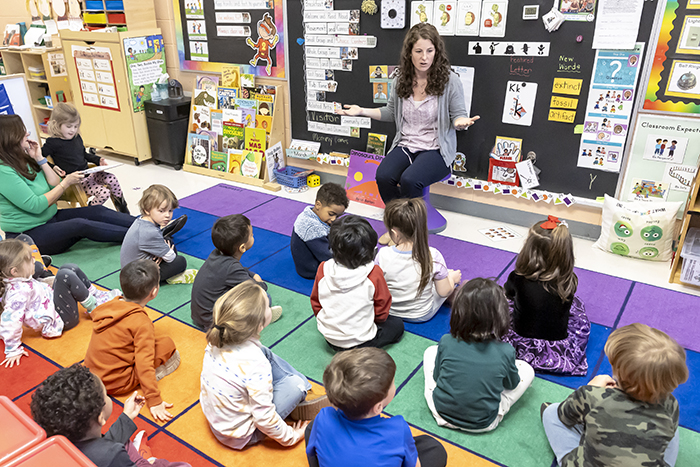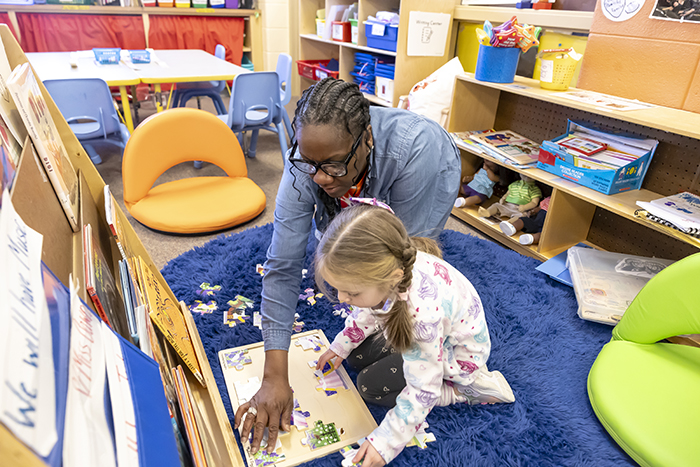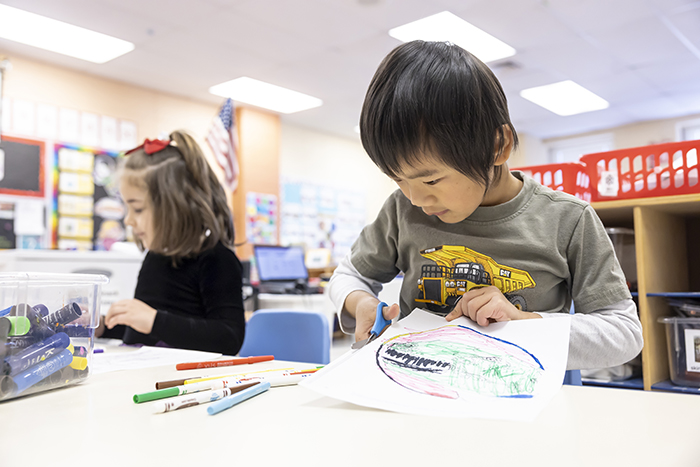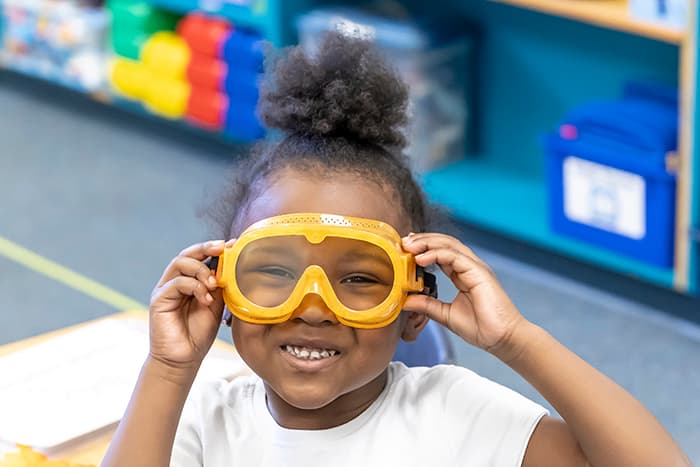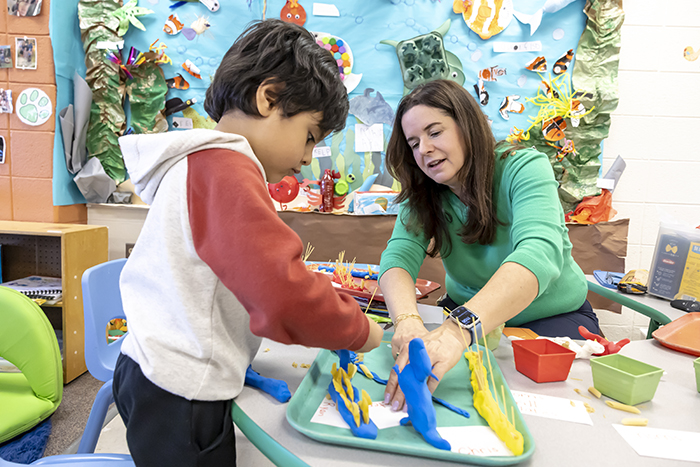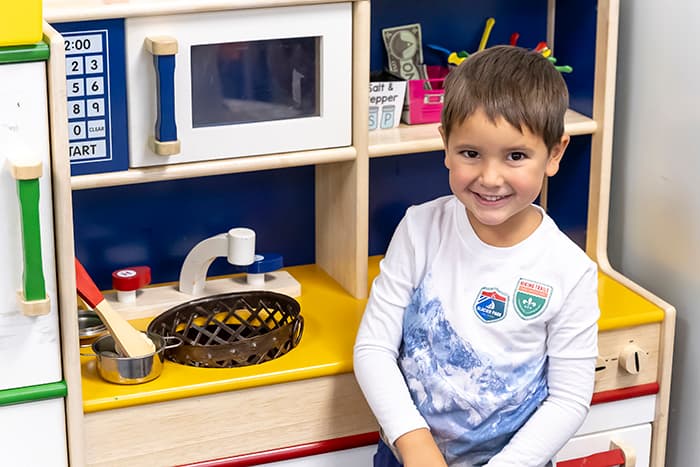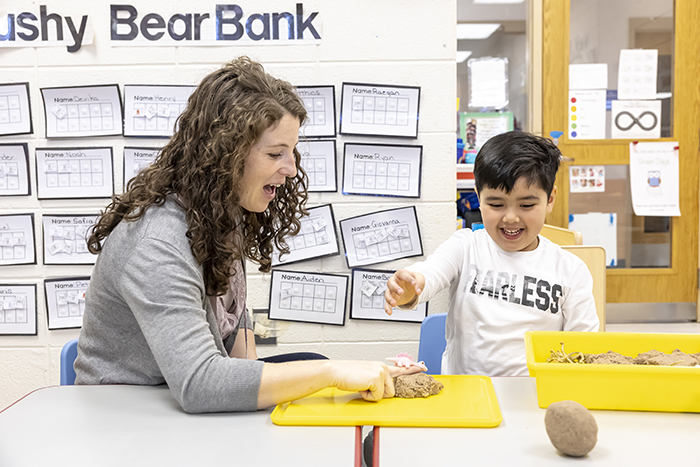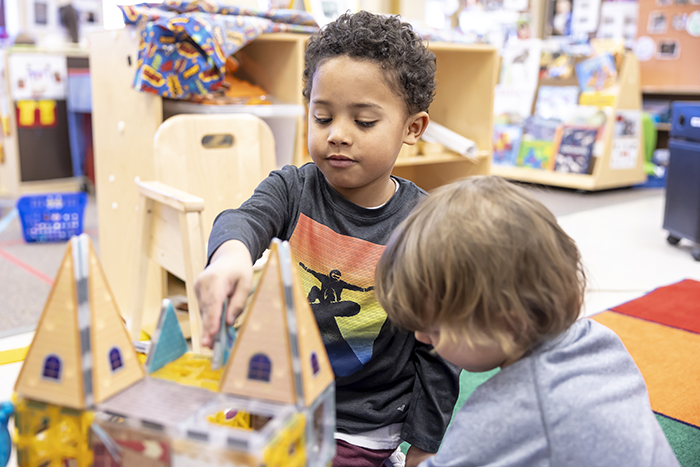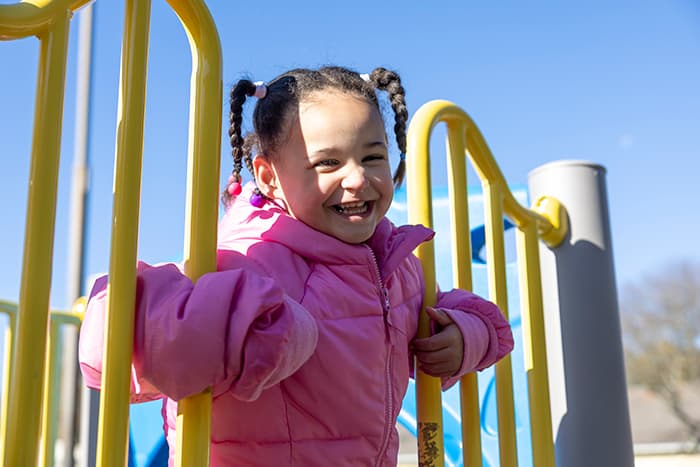Nine HCPSS Pre-K Programs Achieve State Accreditation During 2023-24 School Year
April 3rd, 2024
Nine HCPSS full-day prekindergarten programs achieved Maryland Accreditation during the 2023-2024 school year. (Three additional HCPSS pre-K programs had previously achieved Accreditation.) Under the Blueprint for Maryland’s Future, participating pre-K programs must meet rigorous quality standards, including demonstrating quality and continuous improvement as measured by an approved quality rating system.
Another cohort of HCPSS pre-K programs is currently pursuing Accreditation. All HCPSS pre-K programs are expected to achieve Accreditation by the end of the 2025-2026 school year.
To date, HCPSS pre-K programs that have achieved Accreditation include:
- Atholton Elementary
- Bushy Park Elementary
- Bryant Woods Elementary
- Cradlerock Elementary*
- Centennial Lane Elementary
- Elkridge Elementary
- Jeffers Hill Elementary
- Laurel Woods Elementary*
- Phelps Luck Elementary*
- Running Brook Elementary
- Stevens Forest Elementary
- Swansfield Elementary
*The pre-K programs at Cradlerock, Laurel Woods, and Phelps Luck elementary schools have previously achieved Accreditation and renewed it within the past two years. All HCPSS pre-K programs will continue to maintain and renew their quality ratings.
“We are incredibly proud of our pre-K programs for achieving this distinction,” says HCPSS Early Childhood Coordinator Amy Raymond. “It validates that HCPSS pre-K programs use best practices to deliver high-quality education to our youngest learners.”
“Pre-K is the first experience many students and families have with our schools. Accreditation provides one way for families to feel comfortable and confident sending their children to our pre-K program. It affirms that our programs are not just committed to excellence, but achieving it,” adds Early Childhood Education Resource Teacher Alicia Phippen, who supports HCPSS pre-K programs in achieving Accreditation.
In order to achieve Maryland Accreditation, pre-K programs are required to demonstrate through written documentation and direct observation that they meet standards in three categories: program administration; program operation; and home and community partnerships. Examples of these standards may include:
- Use of teaching strategies that promote an awareness and appreciation of diversity
- Opportunities to engage in play-based learning activities
- Daily writing instruction
- Independent learning opportunities allowing students to explore, investigate, experiment, and problem-solve
- Instruction based on children’s individual needs, interests, strengths and learning styles
- Engaging families and the community in all aspects of the program
Achieving Accreditation takes approximately 18 months and begins with a self-evaluation. Program staff compare their program against the state standards and assign themselves a grade reflecting how closely they meet the standards. From there, they develop and implement an improvement plan to meet any unmet standards.
Achieving Accreditation is not simply checking off a list of boxes, though, explains Bushy Park Elementary School (BPES) pre-K teacher Alison Tomanek.
“It is a deeply reflective process that forces you to evaluate and analyze everything from what educational materials you use, to how you organize the classroom, to how you deliver instruction, to how you communicate with students and families. The standards you have to meet really touch on all parts of the pre-K experience.”
While Accreditation standards are the same for all pre-K programs, the experience of meeting those standards varies by school, says Dawn Martinec, who co-teaches pre-K at BPES with Tomanek.
“Every program has a unique set of strengths and areas for improvement. So what one program has to do to meet the Accreditation standards may differ from another,” Martinec says.
“For us, achieving Accreditation involved a lot of little shifts,” explains Sophia Posada, who teaches pre-K at Jeffers Hill Elementary School and completed the Accreditation process in December 2023. “For example, now, instead of using pre-made coloring sheets, we have students create their own designs. Instead of playing classical music when students come into the classroom, we play music from all over the world.”
JHES also began using learning centers in new ways as part of its work to achieve Accreditation.
“In the past, our students might have started their day by going to the carpet, where they could play with a variety of toys. Now when they come in, they can choose from various learning centers focused on different skills,” explains Anitra Palmer, who also teaches pre-K at JHES. “The centers allow the students to work independently and give teachers time to check in and work with individual students.”
Tomanek says that Accreditation also has changed the way they do some things at BPES. For example, she notes that they celebrate diversity in a more concerted way by partnering with families to value and incorporate their customs into their classroom community.
“We always put a lot of thought and energy into the work we did in our classroom, but Accreditation has taken us to that next level, where we’re being that much more intentional about our work,” Tomaneck says.
Palmer summarizes the Accreditation process as “a ton of work.”
“It’s not just that you’re doing some things differently. It’s that you’re having to collect evidence of those changes, fill out forms, and provide other types of documentation. Plus, you receive visits from Validators, who observe what’s happening in the classroom and verify that you are meeting state standards.”
Martinec agrees.
“It’s like a giant audit. Everything you do is being evaluated, and you have to be willing and able to adjust to meet the standards. We really had to be thoughtful about how this would look for our inclusive classrooms. We are extremely proud of our Multiple Intensive Needs Classroom (MINC-pre-K) to be the first of its kind to receive Accreditation.”
Not surprisingly, Posada, Palmer, Martinec and Tomanek also agree that achieving Accreditation has come with a great sense of relief—and a great appreciation for those who helped them along the way.
“We couldn’t have done it without support from each other and the help of our administrators and our instructional facilitator,” Posada says. “They were there for us every step of the way, encouraging us and helping to make sure we had everything we needed to achieve Accreditation.”
“Our BPES colleagues, in particular, were so helpful,” notes Martinec. “They were willing to support and provide structure for the additional things required to enhance outdoor play like opportunities for music, dramatic play and creative expression.”
HCPSS’ newly accredited pre-K programs will have to undergo the Accreditation process again in five years, but Palmer says she isn’t wasting any time getting started on it.
“We’ve worked so hard to get where we are. We’re going to continue to work hard every day to ensure that we keep up that good work and maintain our Accreditation.”
Additional information about the HCPSS pre-K program, including an application for the 2024-2025 school year, is available online.
 HCPSS
HCPSS